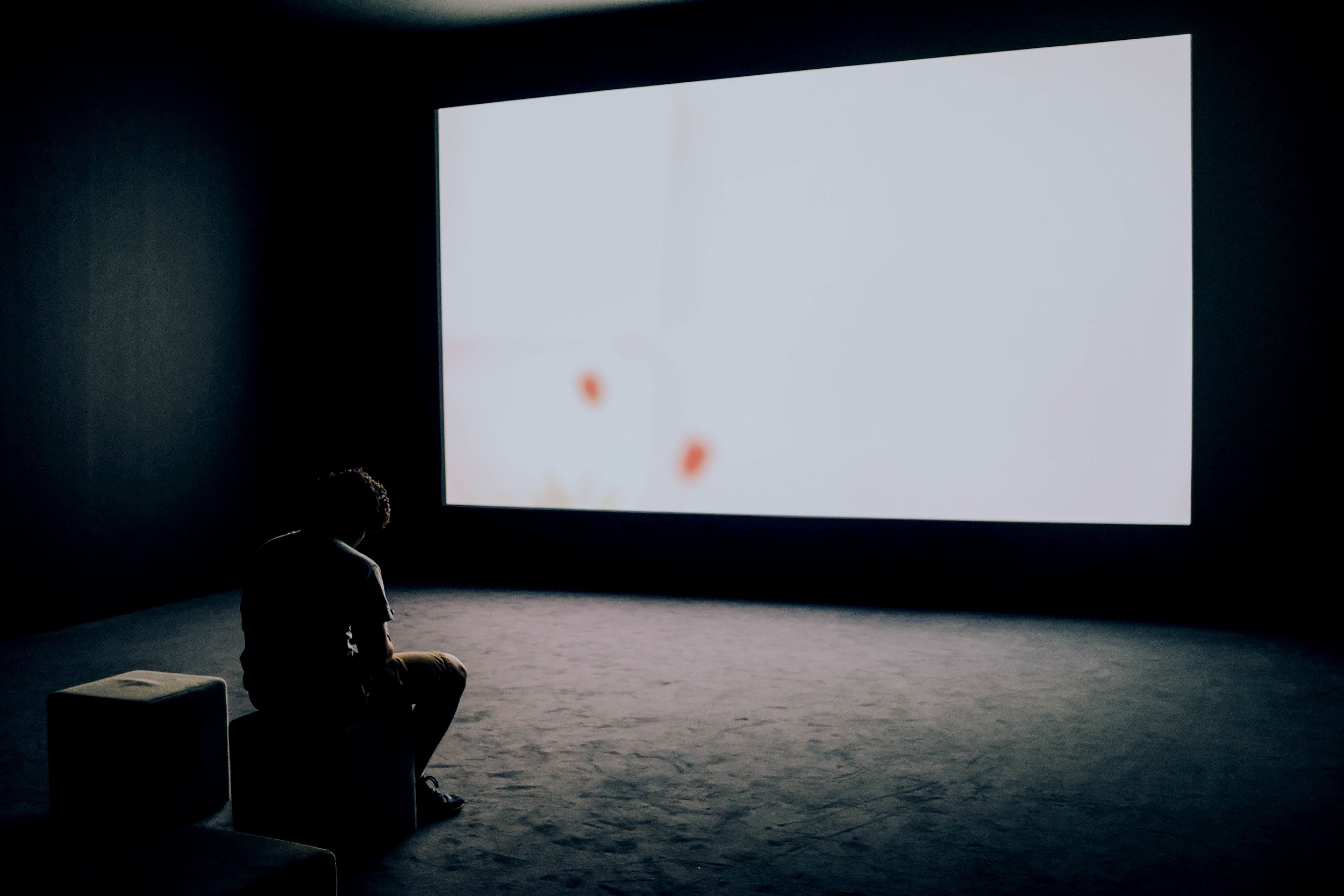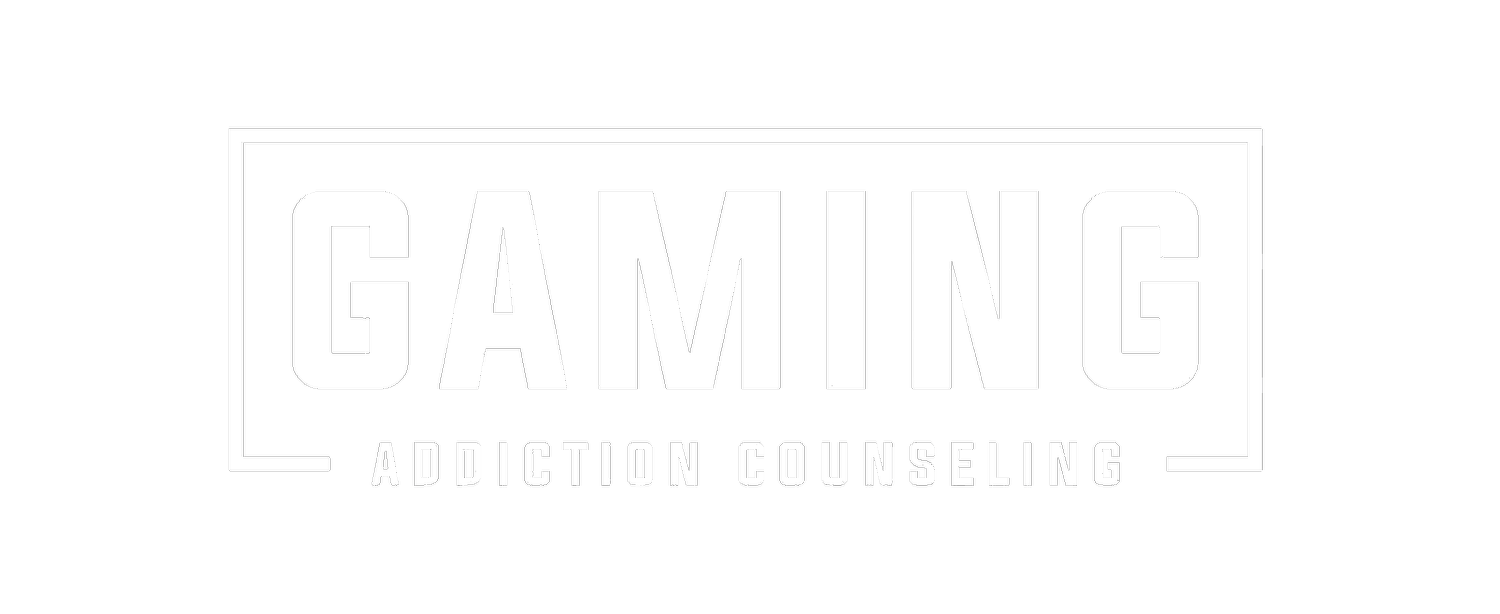
BREAK FREE FROM THE LONELY CYBER PRISON OF GAMING ADDICTION
Find meaning again and go beyond the gaming.
Call me now to find a direction!
Joshua Garth, LMFT, Gaming Addiction Specialist
Phone: (714) 367-4795

Gaming Addiction Is More Than Gaming
Addiction is mostly associated with the term dependency; however, what are video game addicts depending on video games for? Long term use of video games are shown to shutdown the emotional processing centers of the brain. It's a way for video game addicts to turn off the negative emotions, BUT this suppresses the positive emotions as well. Asking video game addicts the meaningful question, "How are you feeling?" will usually elicit the answer of "I don't know" or even silence because the question does not make sense.
Many gaming addicts require assistance and extra time to process emotional content. People close to the gaming addict can become frustrated because this can feel like they are being closed off. Since their emotions are being deafened, gaming addicts lack the required empathy that are in healthy relationships. In other words, the natural emotional give-and-take between friends becomes a stagnant or one-sided relationship with gaming addicts. The best explanation someone may get from a gaming addict when something bad happens to them is, "It sucks." or, again …. silence.
To be clear, a “non-feeling” person IS NOT IN A NEUTRAL MENTAL OR EMOTIONAL STATE. Lack of emotions subjects the gamer to rely on outside sources to tell them how to feel, and ultimately, what the gamer's value is. Video games instruct the gamers on how to feel with tiny rewards after goals are completed. It's a simple reward system. The gamer completes the goal and is rewarded by the game. Otherwise, the gamer is frustrated by the experience, and can even become angry and furious.
This is not a fulfilling cycle by any means. Many gamers isolate, and become anxious and depressed because so many aspects of life are neglected when video games are their main source of identity. They don't do well in social relationships, thus, gaming becomes a safe haven from what they lack. Is this a familiar story in your life?
Am I/Someone I Know Afflicted With Gaming Addiction?
Check any of the items below that apply:
If one of these is checked, gaming has a hold on some aspect of life. If 3 of these items are checked, there is a strong possibility that gaming addiction is part of your life in some way.
The Mental Process Of The Gamer Afflicted By Gaming Addiction
The feeling of achieving the next level, or getting that next reward is more than you can handle. “Only a bit longer and I’ll feel complete”, but a bit longer turns into hours, then days, and then depressed weeks. Soon, free time isn’t enough, and work, social and relationship time is eaten away by the screen in your pocket. “Where did the time go?” The ANXIETY then sets in. “I was going to go shopping, mow the lawn, and go to work, but I’m late for work and haven’t gotten dressed yet.” Even worse, this isn’t the first time it’s happened. You no longer play games for fun of it, but rather to relieve the anxiety and depression. Everything comes secondary. What lies do you use to justify gaming addiction to your friends? What lies do you tell yourself?
What Builds The Cyber Prison
The cyber prison of gaming addiction isn’t created in a vacuum. Unfortunately, the cyber prison usually begins at home with the family. In no way is this a list of reasons to blame the gaming addict or their family, but rather shed light on a system that needs to change. The family can apply pressure to the gaming addict through expectations (sometimes unrealistic), a sense of inadequacy, or helplessness through rigid family rules. The gaming addict can internalize a sense that they will never be enough, the future is hopeless, or they aren’t ready for what their future may hold. It is common that both sides are at play, and eventually, the addiction becomes the identified problem. Both the family and the addict focus solely on the excessive gaming, and most other aspects addict are left out. Then, both the family and the addict feel trapped within a cycle that seems impossible to get out of. The gaming addict then dives deeper into their own cycle.
What Gaming Addiction Does To The Gamer
Activities that were once meaningful become a stepping stone toward sitting in front of the screen again. Small distractions from gaming become obnoxiously irritating, even if it’s your significant other wanting attention. Before going to sleep and after waking up you find yourself basking in the glow of the screen much longer than you intend. Time spent away from gaming is consumed by thoughts of gaming. Eventually, gaming becomes a chore, progress becomes monotonous, and your depression and anxiety seems to get worse everyday you spend playing video games. You feel burnt out, frustrated, guilty, and ashamed, yet your hands find their way back to the device, and your eyes glued to the screen. Why?
Fear of Missing Out
Lack of purpose
False Sense of Accomplishment
Distraction from Negative Feelings
Continuous Destructive Cycle
Bad Substitute for Relationship
What can be done?

What The Four Walls Of Gaming Addiction Represent
Imagine the walls of the cyber prison as the boundaries of an electric fence. What’s beyond the walls are visible, and there is nothing stopping someone from exiting through the boundaries; however, it will be very uncomfortable and painful if someone does try to cross. What are these invisible walls that cause so much pain to video game addicts?
Uncertainty – Gaming addicts stick to what they know. The virtual world they inhabit are comprised of rules that make it much simpler to navigate than the real world, and they feel they hold a lot more control with little risk. The uncertainty of interactions, and lack of progression is frightening and/or boring.
Vulnerability – Screens provides a distance between the gaming addict and other people. Gamers will say they are socializing while in the game; however, there is much more safety when talking behind a screen as an avatar. Being in-person and experiencing another person’s presence can be terrifying because there is nothing the gaming addict can hide behind. Being “found out” as ineffective or unworthy is a major concern for gaming addicts as well as other addicts.
Dishonesty – Gamers are excellent procrastinators. Whether it be relationships, homework, or their own feelings gamers know how to dodge things that are stress-inducing. The name of the game is to be distracted long enough so that the stressors are out of sight and out of mind. Dishonesty is effective at getting problems to leave, but they never really go away. Eventually, the problems will comeback just reminding the gamer about how much they are lacking. If they ever come out of the gaming fog, they will have to come face-to-face with themselves, the good and the bad, and that is intolerable for them.
Unrealistic Expectations – As gaming addicts continue to use their time to play games, the more aware they become of the expectations they aren’t living up to. Unfortunately, although some of the expectations come from the people around them, most of the expectations are in their own head. The anxiety and sadness that comes from not living up to what they could be is devastating.
The ceiling that holds the four walls in place is the fantasy gaming world they put themselves as a distraction and for protection. As long as the 4 walls stay intact, the false ceiling will remain to overshadow reality. It takes a lot to break through the walls, but it isn’t impossible. Each wall can be dealt with.
How To Break The 4 Walls Of Gaming Addiction
Resetting Realistic Expectations – Expectations need to shift especially if they are unattainable at the time, AND IT’S OKAY TO NOT HAVE MET CERTAIN EXPECTATIONS. There’s a good chance they were set too high in the first place. If there is any worry about letting other people down, that needs to change as well. People pleasing reinforces BAD EXPECTATIONS, and there are plenty of bad expectations that need to be dispelled. It’s important to put the control of life back into the gaming addict’s hands.
Calling Things What They Are – Habits of consistent lying are just that; bad habits. Although morality is tied to honesty, it is more than just an “in-the-moment” decision of right or wrong. It is a habitual behavior that needs to be correctly trained. Gaming addicts have enough shame about what they do (although they may not admit it), I don’t intend to shame them more for being dishonest. It’s not helpful and will reinforce another wall in the cyber prison. The more a video game addict can be honest with themselves, the more they can make good decisions about their gaming habits moving forward.
Opening Up The Vault – By definition, vulnerability puts the person in a state of exposure. The vulnerability gaming addicts fear the most is in relationship with another person. Much of it comes from feeling like the other person may judge them or expose the gaming addict as not being good enough. And… it’s all true! That fear is shared by everyone. However, through consistent relationship and trust building, this fear can be alleviated. Like being honest, this is a habit that needs to be trained, and experienced in a safe manner. Social skills training, breakout small groups, and general trust can help the vault doors to open once again.
Using Uncertainty To Your Advantage – Diving into the unknown seems like a terrible thing to try. All of the problems, bad situations, and unpredictable tragedies just aren’t worth it. To those who just agreed with that sentiment, it is clear the future looks bleak to you. Why doesn’t the unknown future also spell out opportunity, prosperity, and encouragement? What negatives clouds cast a shadow over the future? Gaming addicts use excuses (some of them farfetched) to prove why they will never take risks, unless they are 100% certain of the outcome, and even then, may not proceed. Having trust takes time to understand and implement. Things may turn out poorly, but knowing you will still be intact and you can still continue on takes experience. Gaming addicts need to try taking small risks; activities that won’t be too anxiety provoking. From there, they can continue increasing the “danger” with each new risk. The importance is knowing that uncertainty can be shaped as long there is an active participant to shape it.
What Do I Do To Help?
Coaching and Mentoring For Gaming Addiction Vs. Therapy For Gaming Addiction
The severity of the addiction and place where the addiction comes from dictates part of what the solution may be. Not every case requires intense, insight-oriented psychotherapy. Some people have just lost their way and need some direction and accountability to get back on track. Coaching and mentoring from a neutral third party can be more effective in these cases. Others need the deep exploration insight-oriented therapy has to offer. In many cases, both approaches can be used complementary. If done correctly, these paths will lead to the result the client needs. Here are the differences between coaching/mentoring and insight-oriented therapy:
COACHING
Coaching Develops Strengths
Coaching Focuses on the Controllable Future
Coaching views Purpose as Providing Options and Empowerment
Coaching Works with Behavior and Skills
Coaching Views Problems as Solvable Roadblocks
Coaching Assumes Client can Develop Skills to Work Through Problems
Coaching Views the Path to Success Lies in the Client’s Conscious Mind/Control
Coaching Looks for External Solutions and Skill Acquisition to overcome roadblocks
Coaching asks the questions, “Who are you? Who do you want to be? How do you want to get there?”
THERAPY
Therapy Looks to Fix What is Broken
Therapy Focuses on Feelings and the Past
Therapy Views Purpose as Healing Dysfunction and Pathology
Therapy Works with Core Beliefs
Therapy Explores the Root of the Problem
Therapy Assumes the Client Needs Healing
Therapy Believes the Path to Success is to Bring the Unconscious to The Conscious
Therapy works for Internal Resolution of Pain and Changing Old Patterns
Therapy Answers the Question “Why do I…?”
Choose Your Difficulty
I’m Your Strategy Guide Along The Way

More Than A Gaming Addiction
This familiar story of gaming addiction affects millions of people. Maybe you have tried to stop before, or you just realized how much this has negatively affected you. Your life doesn’t have to be this way, and your situation is not hopeless.
I can help. I have loved playing video games since I was young, but I know the control they can impose. Through retraining your thoughts, understanding your emotions, and behavioral training, we can loosen the grip gaming addiction has on your life. The consistent anxiety and depression you feel is only temporary. Take the first step out of the cyber prison, and contact me.










